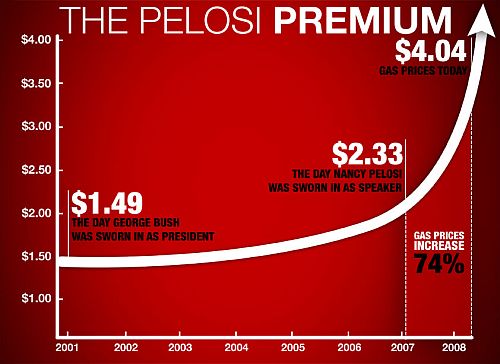It’s not only seniors who should be wary of the healthcare games the administration and congress are now playing. Everyone stands to lose from the government’s grab, including the younger demographic who will be forced to buy insurance whether they want it or not.
As we used to say when I was a kid, “there’s a rat in the woodpile.” Or maybe more appropriately, “there’s a hidden virus inside the Trojan Horse.”
Something Smells Fishy About This Kool-Aid
 President Barack Obama appeared to backtrack on a key provision of his attempted health care coup, telling a Colorado town hall audience that “the public option, whether we have it or we don’t have it, is not the entirety of health care reform. This is just one sliver of it, one aspect of it.” So the president is giving in on the government-run option, right? Wrong.
President Barack Obama appeared to backtrack on a key provision of his attempted health care coup, telling a Colorado town hall audience that “the public option, whether we have it or we don’t have it, is not the entirety of health care reform. This is just one sliver of it, one aspect of it.” So the president is giving in on the government-run option, right? Wrong.
While it’s a given that some on the Left are going bananas over the announcement, none other than former DNC Chief Howard “The Scream” Dean let the cat out of the bag on the strategy. “[T]he president knows very well that you aren’t really going to have health care reform without a public option,” Dean told MSNBC’s Joe Scarborough. “But he also knows he has to get this out of the Senate.” So the president is playing a cynical game of politics with health care? Say it ain’t so!
For now, 60 votes in the Senate are necessary to avoid a filibuster, and the public option is making that threshold harder to reach. If the bill were passed without the public option, it could be added back during reconciliation, at which point only 50 votes would be necessary for passage.
White House Press Secretary Robert Gibbs spun the strategy shift by calling it a “boring consistency to our rhetoric.” Nothing’s changed, according to Gibbs. The facts, as usual, contradict the Democrats. On July 18, Obama said, “[A]ny plan I sign must include an insurance exchange: a one-stop shopping marketplace where you can compare the benefits, cost and track records of a variety of plans — including a public option to increase competition and keep insurance companies honest — and choose what’s best for your family.” But according to Gibbs, changing “must include” to “whether we have it or we don’t have it” is just “boring consistency.”
The proposed alternative to the public option is nonprofit health insurance cooperatives. However, as the Cato Institute’s Michael Tanner explains, “Government-run health care is government-run health care no matter what you call it. The health care ‘co-op’ approach now embraced by the Obama administration will still give the federal government control over one-sixth of the U.S. economy, with a government-appointed board, taxpayer funding, and with bureaucrats setting premiums, benefits and operating rules. Plus,” Tanner adds, “it won’t be a true co-op, like rural electrical co-ops or your local health-food store — owned and controlled by its workers and the people who use its services. Under the government plan, the members wouldn’t choose its officers — the president would.”
As for the public option, Jacob S. Hacker, the liberal Yale scholar widely attributed with originating the idea, denies that it is a “Trojan Horse” to sneak in single-payer, government-run health insurance behind citizens’ backs. It seems, however, that Hacker also suffers from an acute case of “boring consistency.” In 2008, Hacker sounded a different note: “Someone once said to me, ‘Well, this is a Trojan horse for single payer.’ I said, ‘Well, it’s not a Trojan horse, right? It’s just right there! I’m telling you!’ We’re going to get there [to a government-run system] — over time, slowly.” He continued, “But we’ll do it in a way that we’re not going to frighten people into thinking they’re going to lose their private insurance.”
Sounds like the frog in the boiling water to us.
 Maricopa County, which includes the Phoenix Metro area, extends far enough North to include Wickenburg which is where our new home will be. The statistics below show a significant shift to the right, probably because of the county’s voters collective disgust with The administration and Congress in D.C. and approval of Arizona Governor Jan Brewer‘s Constitutional gun and immigration enforcement policies.
Maricopa County, which includes the Phoenix Metro area, extends far enough North to include Wickenburg which is where our new home will be. The statistics below show a significant shift to the right, probably because of the county’s voters collective disgust with The administration and Congress in D.C. and approval of Arizona Governor Jan Brewer‘s Constitutional gun and immigration enforcement policies.


 President Barack Obama appeared to backtrack on a key provision of his attempted health care coup, telling a Colorado town hall audience that “the public option, whether we have it or we don’t have it, is not the entirety of health care reform. This is just one sliver of it, one aspect of it.” So the president is giving in on the government-run option, right? Wrong.
President Barack Obama appeared to backtrack on a key provision of his attempted health care coup, telling a Colorado town hall audience that “the public option, whether we have it or we don’t have it, is not the entirety of health care reform. This is just one sliver of it, one aspect of it.” So the president is giving in on the government-run option, right? Wrong.

 For a moment it was fun to think that our Sacramento Gun and Ammo Grabbers might be overruled by Federal mandate . . . but it’s probably going to be DOA in the House.
For a moment it was fun to think that our Sacramento Gun and Ammo Grabbers might be overruled by Federal mandate . . . but it’s probably going to be DOA in the House. And secure the borders while we’re at it.
And secure the borders while we’re at it.